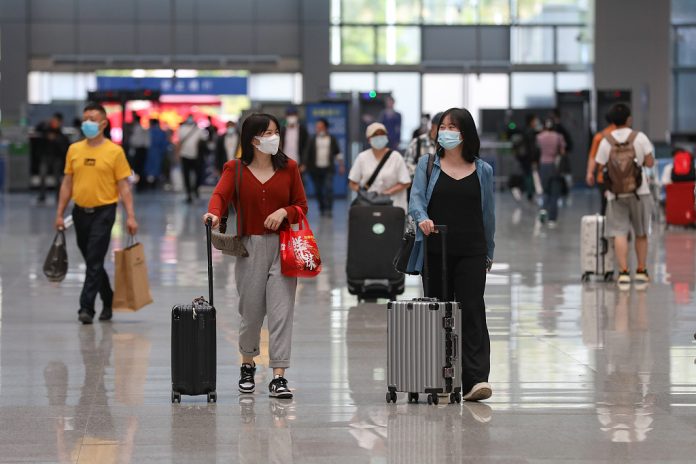Airlines have responded favorably to the strategy implemented by the Thai government to position the country as a hub for aviation and logistics in Southeast Asia.
Nonetheless, there are still ongoing concerns about airport overcrowding and the substantial financial outlays necessary to meet the growing demand. Utilizing Thailand’s advantageous geographic location, Prime Minister Srettha Thavisin recently outlined plans aimed at encouraging more foreign airlines to increase their operations inside its boundaries.
Airlines have responded favorably to the strategy implemented by the Thai government to position the country as a hub for aviation and logistics in Southeast Asia.
Nonetheless, there are still ongoing concerns about airport overcrowding and the substantial financial outlays necessary to meet the growing demand. Utilizing Thailand’s advantageous geographic location, Prime Minister Srettha Thavisin recently outlined plans aimed at encouraging more foreign airlines to increase their operations inside its boundaries.
Tassapon Bijleveld, the executive chairman of Asia Aviation Plc (AAV), which is the main stakeholder of Thai AirAsia (TAA), emphasized the importance of making significant investments in order to position Thailand as a hub for regional aviation. The speaker focused on the crucial issue of near-maximum capacity at Bangkok’s two main airports, Suvarnabhumi and Don Mueang. The airport that receives the majority of planes arriving in Bangkok, Suvarnabhumi Airport, is especially congested. Tassapon also emphasized the physical limitations that Phuket Airport faces in its expansion. According to the Bangkok Post, Phuket Airport is the nation’s second-largest international aviation traffic hub.
It is critical to create comprehensive, long-term plans to transform Thailand into a major aviation hub capable of handling growing airline fleets and passenger numbers. Tassapon underlined how inadequate the current infrastructure is, citing Suvarnabhumi Airport’s single passenger terminal as a barrier. Even with the construction of a satellite terminal recently, the capacity of the existing infrastructure is still not enough to accommodate the growing number of foreign flights.
“The government must outline a clear plan and move quickly to take action, even though becoming an aviation hub may require a significant time and financial commitment,” Tassapon added. He proposed other alternatives, such expanding Suvarnabhumi Airport or building a second airport in Phangnga, to ease traffic in Phuket.
Tassapon offered more insight into the government’s plan to provide regional airports—such as those in Udon Thani, Khon Kaen, and Buri Ram—international status. While airlines are in favor of this move, Tassapon stressed that, as has been the case with certain airport expansion projects, the government must consistently support long-term development initiatives and reduce project delays.
The public and commercial sectors must work together to address a wide range of issues in order to build Thailand as a leading hub for aviation and logistics. Prioritizing the resolution of infrastructure constraints and the facilitation of continuous operations is essential to improving the country’s connection within the global air transport network and luring in foreign carriers.
In addition to increasing airport capacity, Thailand’s logistics capabilities need to be enhanced by investments in auxiliary infrastructure, such as cargo facilities and transportation networks. Thailand may increase its competitiveness and operational efficiency and position itself as a top destination for international trade and commerce by skillfully combining air, sea, and land transport modalities.
Crucially important are also the implementation of laws that encourage industry growth and the creation of favorable regulatory environments. Encouraging stakeholders to remain involved in Thailand’s fast growing aviation industry will be facilitated by reducing bureaucratic red tape, promoting regulatory compliance, and providing investment incentives.
In order to overcome challenges and accomplish the goal of establishing Thailand as a preeminent hub for aviation and logistics in Southeast Asia, effective collaboration between stakeholders in the public and commercial sectors is essential. Thailand may make the most of its geographic advantages and become a major player in the global aviation industry by emphasizing strategic investments, fostering innovation, and creating a supportive environment.


